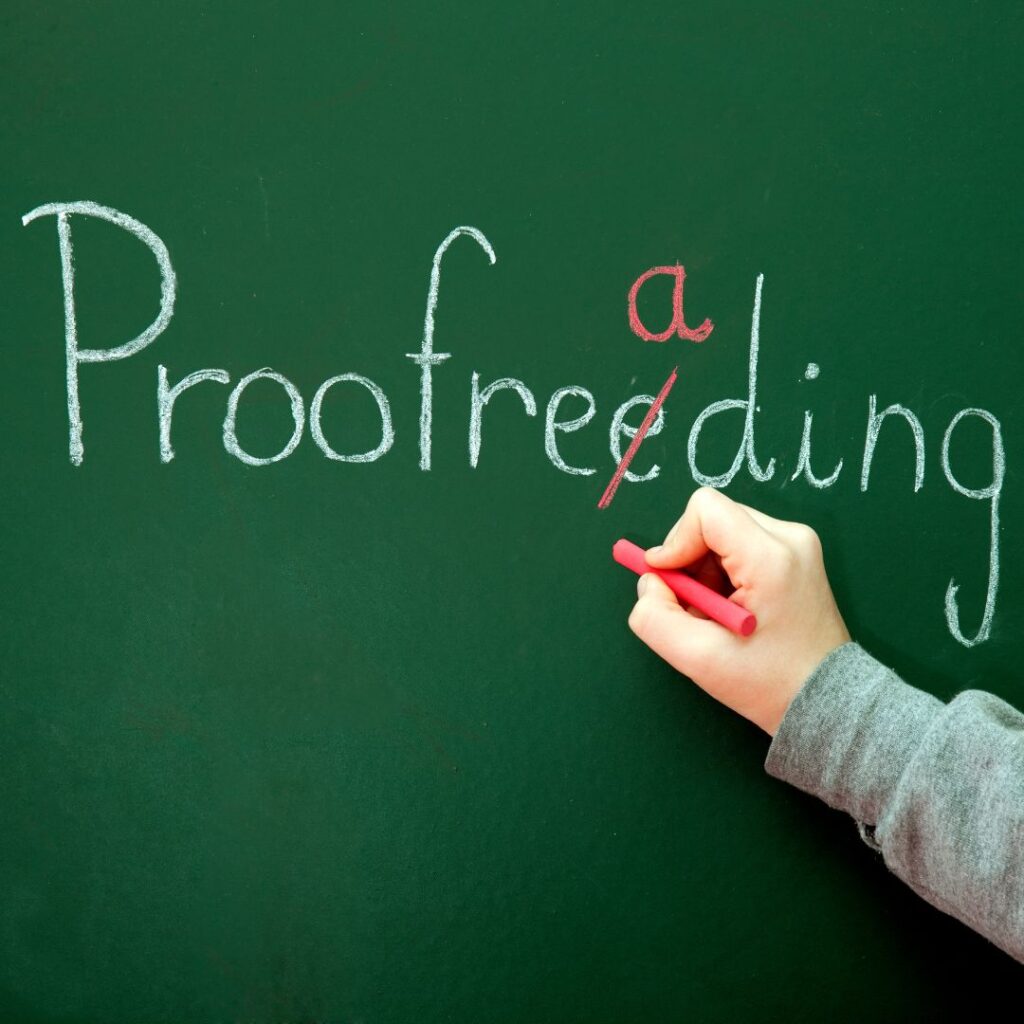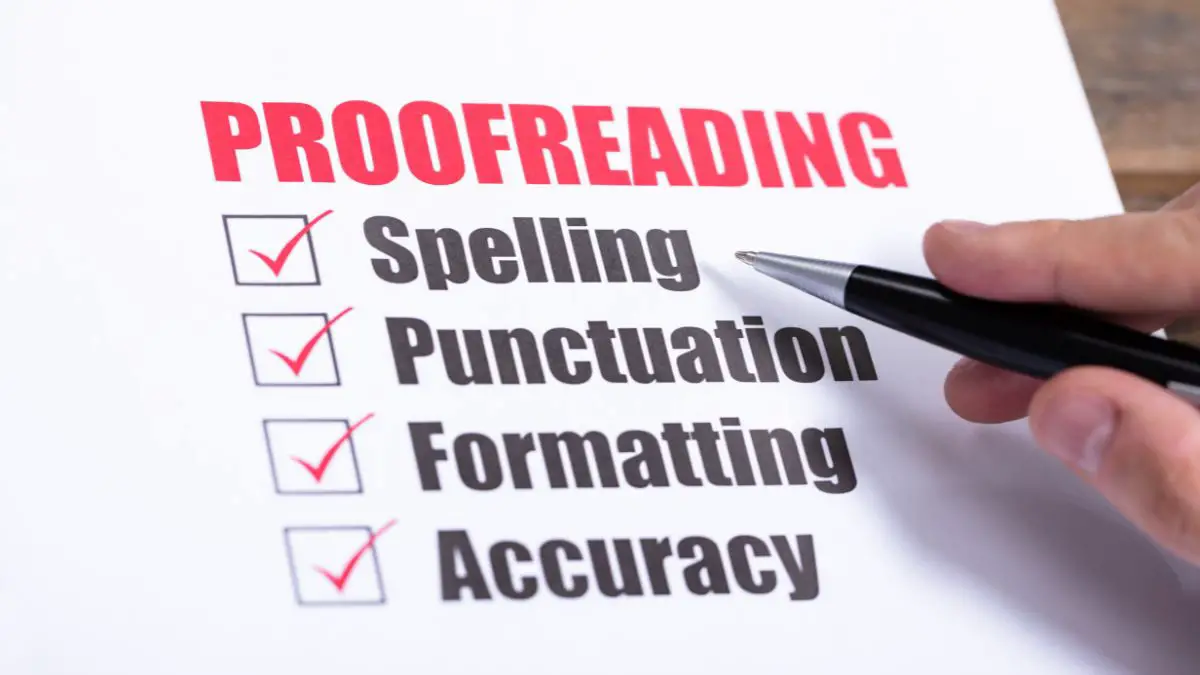Table of Contents
- Introduction
- What is Proofreading?
- Why is Proofreading Important?
- Essential Skills for Proofreading
- How to Become a Proofreading Expert
- Conclusion
Introduction
Some of you might ask:
What is proofreading?
Writing is an essential skill in today’s world. Whether crafting an email, composing a report, or publishing a blog post, strong writing abilities allow us to communicate ideas clearly and effectively.

However, even the best writers make mistakes. That’s where proofreading comes in.
Proofreading is the vital process of reviewing a piece of writing to catch and correct any errors before sharing it with readers. In this educational blog post, we’ll explore the ins and outs of proofreading and how mastering this skill can enhance your writing abilities.
First, we’ll define proofreading and explain how it differs from editing. Next, we’ll discuss why proofreading matters – how it improves readability, strengthens credibility, and enhances the quality of your written work. We’ll also outline the core skills needed to become an expert proofreader.
Finally, we’ll provide practical techniques and resources to help you boost your proofreading prowess. Whether you’re a student looking to refine an essay, a professional seeking to level up your business writing, or a personal writer aiming to improve correspondence, this post will equip you with strategies to master this indispensable skill.
By the end, you’ll understand the critical role proofreading plays in clear communication and be ready to start honing your skills. With practice and dedication, you can become a proofreading pro – and take your writing to the next level. So let’s get started!
What is Proofreading?
Proofreading is the final step of the writing process, involving a thorough and meticulous review of a document to identify and correct any errors before it is finalized and shared. Proofreading focuses on surface-level issues like spelling, grammar, punctuation, formatting, and consistency.
Proofreading differs from editing, which looks at more substantive content, structure, flow, and style issues. Nonetheless, in a book project, proofreaders and editors work very closely throughout the publishing process. The expertise of the proofreaders and editors can influence the outcome of the publication.
A proofreader carefully examines a document word-for-word and line-by-line to catch mistakes writers and editors may overlook. Their key tasks include checking for typos, incorrect grammar usage, inconsistent formatting, factual errors, etc. They also ensure adherence to the required writing style and formatting guidelines.
Here are some common errors that proofreaders look out for:
- Spelling mistakes
- Grammatical errors like subject-verb agreement issues, incorrect verb tenses, missing articles, etc.
- Incorrect or inconsistent punctuation use, like misplaced commas or quotation marks
- Formatting inconsistencies like text not adhering to style guidelines
- Factual inaccuracies or statements lacking attribution
- Broken links, missing images, or other technical issues
In addition to fixing errors, proofreaders may flag unclear passages needing revision and check internal consistency. Their sharp eye for detail is critical for producing high-quality written content without distracting mistakes.
Why is Proofreading Important?
Proofreading is a critical step that should never be skipped, as failing to review written work carefully can have significant consequences. Here are some of the key reasons why taking the time to proofread is so important:
Proofreading Avoids Miscommunication with Readers
When a piece contains many errors, it can be difficult for readers to understand the intended meaning. Typos, grammatical mistakes, and inconsistencies can confuse while reflecting poorly on the writer. Thorough proofreading ensures that the message is conveyed clearly and accurately.
Proofreading Maintains Professional and Academic Credibility
Poor proofreading gives the impression of carelessness or lack of expertise in professional, academic, or formal settings. Readers will judge the writer’s competence and credibility based on the quality of their writing. Proofreading polishes the work and helps establish the writer as meticulous and knowledgeable.
Proofreading Improves Overall Quality
Proofreading puts the finishing touches on any written piece of work. Identifying and correcting flaws in grammar, spelling, punctuation, formatting, and style elevates the work to a higher standard. This level of polish makes the reading experience smooth and enjoyable for the audience.
In summary, meticulous proofreading is essential for producing high-quality writing that conveys the intended message to readers in a polished and professional manner. Taking the time to proofread demonstrates respect for the reader and care for one’s reputation as a skilled writer.
Essential Skills for Proofreading
Proofreading requires certain core skills to be done effectively. Let’s examine the key abilities and knowledge needed to become an expert proofreader.
Attention to Detail
A good proofreader must have an exceptional eye for detail. You need to spot tiny errors that others would easily miss. Paying close attention to spelling, punctuation, formatting, style consistency, and factual accuracy is crucial. Proofreading requires patience and discipline to check every word, sentence, and paragraph thoroughly.
Excellent Grammar Knowledge
You need an in-depth understanding of grammar rules and conventions to catch all types of grammatical errors. This includes knowledge of syntax, verb tenses, subject-verb agreement, pronouns, modifiers, punctuation usage, and more. Familiarity with different writing styles and the ability to spot inconsistencies is also important.
Understanding of Style Guides
Proofreaders must be well-versed in relevant style guides like the APA Style, MLA, Chicago Manual of Style, etc, particularly those working in academic publishing. A good journal article or book must also cite their work accurately.
These style manuals provide standards for citation formats, abbreviation rules, capitalization use, and writing tone. Knowing the guidelines well helps catch stylistic inconsistencies.
Patience
Proofreading cannot be rushed. It requires patience and diligence to check a document multiple times thoroughly. You need persistence and attention span to focus while combing through the text. Proofreading can be tedious, but patience is vital.
Systematic Approach
Having a methodical system for proofreading is essential. This involves carefully reviewing each sentence, double-checking proper names/numbers, scanning for visual errors, reading sections backward, and taking breaks to maintain sharp focus. Developing efficient techniques through practice is key.
Mastering these core skills forms a solid foundation for becoming an expert proofreader. With consistency and dedication, anyone can hone their abilities to proofread at an advanced level.
How to Become a Proofreading Expert
Becoming an expert proofreader requires dedication and consistent practice. Here are some tips to help you improve your proofreading skills:
Read Extensively
Make a habit of reading high-quality material across different genres. Exposure to well-written pieces in literature, journalism, academic writing, and other fields will attune you to proper language use and structure. Learn to read more books in less time.
Learn Grammar Rules
A strong grasp of grammar principles and rules is essential for identifying errors. Study grammar guides, take courses, and use online tools to deepen your knowledge.
Use Proofreading Symbols
Mastering proofreading marks allows you to flag issues in a document efficiently. Print out sheets of common symbols to have on hand as you proofread. For example, the Chicago Manual of Style has a comprehensive list of proofreading symbols you can learn and use.
Practice Regularly
Actively practice proofreading daily. Set aside time to proofread short texts, articles, emails, or your writing to build experience. As time passes by, this practice will become natural to you.
Use Tools Strategically
Tools like spellcheckers and grammar checkers can assist but should not replace human proofreading. Use them to supplement your skills.
Proofread in Passes
Complete multiple passes focused on catching a specific type of error each time. For example, focus on spelling in one pass, then grammar in the next.
Read Aloud
Reading the text out loud forces you to look at each word and helps you identify awkward phrasing. Mark areas that sound off.
Work With Style Guides
Consult style manuals like AP Stylebook or Chicago Manual of Style to perfect your expertise on stylistic conventions and usage standards.
You can become a meticulous proofreading expert with regular practice and dedication to honing your skills.
Conclusion
As we wrap up this blog post, it’s clear that developing expert proofreading skills can be hugely beneficial for enhancing your writing abilities. Proofreading allows you to deliver polished, professional work that aligns with style guidelines and avoids distracting errors.
We covered the key facets of proofreading – from understanding what it entails to the essential skills required. Proofreading goes beyond fixing typos; it’s about analyzing your work keenly to identify grammar, punctuation, spelling, formatting, and more issues.
With practice and dedication, anyone can become a proofreading pro. Apply the techniques shared, such as reading backward or out loud, using checklists, and leveraging tools like Grammarly. Consistency is vital – make proofreading a habit, not an afterthought.
Now that you’re armed with proofreading knowledge, it’s time to implement it. Start proofreading everything you write, from emails to reports. Develop your skills further with online courses. And remember – the more you proofread, the better you’ll become.
Proofreading has the power to elevate your writing to the next level. So embark on your proofreading journey today and watch your skills transform!

20 thoughts on “What is Proofreading?”